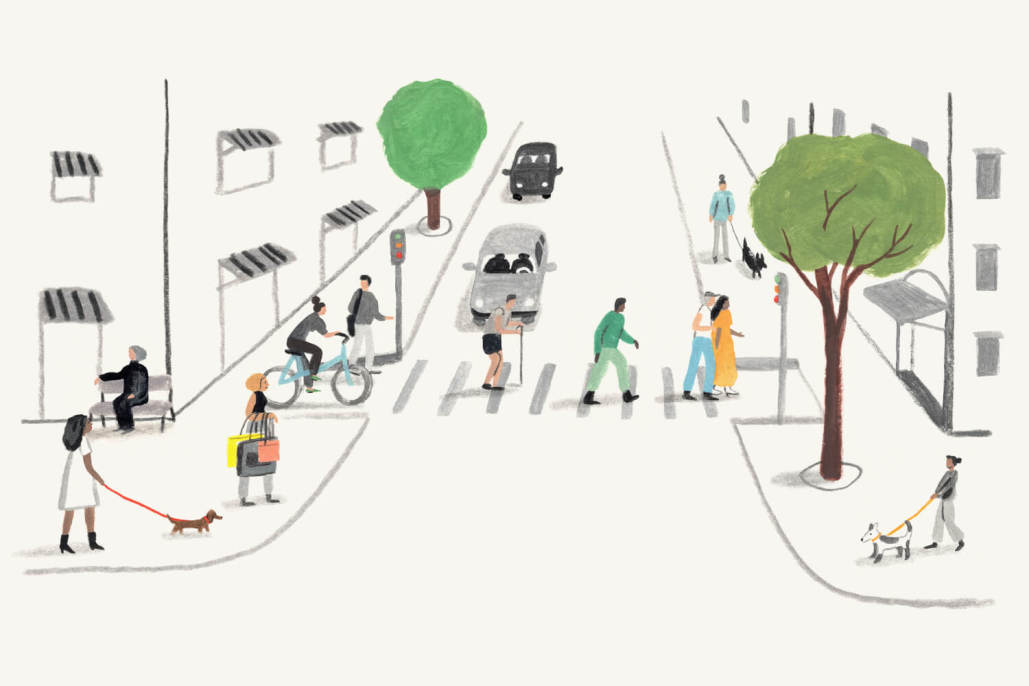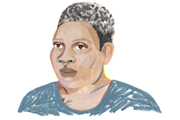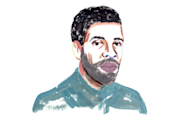Starting with a new therapist can feel overwhelming.
Whether it’s because you feel your progress has stalled, your needs have changed, or because you’re moving to a new city, changing therapists can feel exciting and hopeful.
However, it can also feel somewhat daunting to begin anew and to rehash all of your history and back-story with a new person.
Whether you want to see a new therapist or you need to change therapists, it’s helpful to be prepared for your first meeting.

4 tips for starting with a new therapist
Here is some advice to do and think about before the first session from licensed marriage and family therapist Dr. Ben Caldwell, PsyD.
1. Feel free to talk about your previous therapy experiences with your new therapist
It will save both you and your therapist time if you are upfront about what has worked and what hasn’t worked in therapy so far for you.
While it’s important to be open to trying different approaches, if you’ve had negative experiences in the past or a change in circumstance since you first began therapy, it’s important that your new therapist knows about it.
Certain therapeutic approaches simply don’t work for some people. Find out more about the different styles of therapy to understand which might be best-suited for you.
“Don’t worry that your new therapist might think you’re bad-mouthing the old one; we know that not all therapy is successful or enjoyable,” says Dr. Caldwell. “Think of it as training your therapist on how to work specifically with you and your needs.”

2. If you don’t want to start completely fresh, that’s OK. But, if you do, that’s OK, too
Dr. Caldwell suggests allowing your new therapist to contact your old one and access your records.
“If we're keeping good enough records, and your past therapy was recent enough, starting with a new therapist should feel like attending a next session, not another first one,” he says.
If you’re worried about your previous therapist’s views influencing your new therapist’s, you can go through the records together.
If that still feels too invasive to you, remember that starting over completely fresh is perfectly fine, too. (Just be aware that you may have to repeat some conversations to get your new therapist up-to-speed.)
3. Use what you’ve learned in the past
Just because you decided to move on from a therapist doesn’t mean the things you learned aren’t valid.
“Whatever you've learned about yourself in prior therapy, particularly about how you best interact with therapists, is worth sharing,” says Dr. Caldwell.
Continuing to use what you learned allows you to build upon it.
4. Try to limit comparing your old and new therapist with each other
It’s human nature to compare. That said, constantly measuring your new therapist against your old one isn’t very helpful, and takes focus away from your new therapeutic relationship and subsequently your progress.
The comparison you should pay attention to?
“If the new therapist seems worse, it’s worth taking a careful look at why that is—and then working to fix it,” advises Dr. Caldwell.
Ending a relationship with a therapist is hard.
This is someone you’ve likely shared intimate information with, and starting that whole process over with a stranger is scary.
But choosing to continue therapy with someone new in spite of that fear is worth it.
How to find a new therapist with the best approach for you
On the Monarch directory by SimplePractice you can find therapists who are the best match for you.

You can search for areas of specialty such as anxiety, PTSD, depression, or grief.
For example, you can quickly find all the therapists in New York City who specialize in anxiety or all the therapists in Boston who specialize in depression.
You can also browse therapists who accept your health insurance plan.
You'll have options to choose therapists who offer in-person sessions, telehealth video appointments, and 15-minute free initial consultations.
READ NEXT: How Do I Find a Great Therapist Who's Accepting New Clients?
Searching for a great therapist? Check out the Monarch directory by SimplePractice to find therapists near you with availability and online booking.
Benjamin E. Caldwell, PsyD. (2017). Retrieved from Benjamin Caldwell, PsyD website: https://www.bencaldwell.com/
Polish, J. (2019, September 20). Switching therapists after years means catching up someone new. Retrieved from Bustle website: https://www.bustle.com/p/switching-therapists-after-years-means-catching-up-someone-new-18754312





